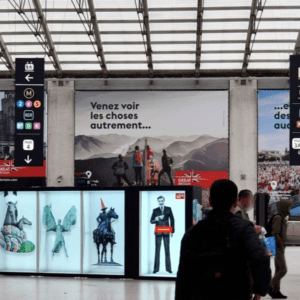University of Phoenix has released the results of its summer travel cybersecurity survey, which found that while half of registered voters worry about cybersecurity risks while on vacation, 55 per cent feel that the need to use personal devices outweighs those risks.Ê
ÒVacations are often a time when we let our guard down, which can leave us vulnerable to hackers who want to steal personal information,Ó said Dr Kirsten Hoyt, Academic Dean, College of Information SystemsÊand Technology at University of Phoenix. ÒWhether you are in another country or down the street, it is important for people to take precautionary measures when travelling this summer.Ó
 Summer vacation is often seen as a time to disconnect, yet three out of four respondents say they bring their smartphone with them, and half check their devices at least once an hour. Despite using their devices often, very few take measures to prevent hackers from potentially accessing personal information: 54 per cent lock devices when not in use, but less than half take other precautions, such as hiding devices when away (40 per cent), updating antivirus software (39 per cent) or changing passwords (24 per cent).
Summer vacation is often seen as a time to disconnect, yet three out of four respondents say they bring their smartphone with them, and half check their devices at least once an hour. Despite using their devices often, very few take measures to prevent hackers from potentially accessing personal information: 54 per cent lock devices when not in use, but less than half take other precautions, such as hiding devices when away (40 per cent), updating antivirus software (39 per cent) or changing passwords (24 per cent).
According to the survey, stolen bank information is the top concern for registered voters while traveling, selected by more than half of respondents. Other major concerns include losing devices (48 per cent) and contracting viruses on devices (44 per cent), while less than a third are concerned about hacked email or social media accounts. Some people are taking steps to be more secure: 86 per cent of those surveyed say they update security settings if hacked.
Other findings from the survey include:
Half of respondents say using devices on vacation is as safe as at home.
Sixty-eight percent of respondents feel more secure using their phone’s hotspot versus public Wi-Fi.
More than half of respondents check email or social media while on vacation.
Forty-one percent of respondents post photos from trips on social media accounts while away from home.
ÒThere are myriad ways your personal information can be compromised while you’re away from home; the best method to prevent it is to be aware of how you can be hacked and take steps to avoid that,Ó said Dr Hoyt. ÒVacations should be relaxing and fun, but in today’s world of connected devices, we always have to be alert.ÓÊ
Survey methodology
This poll was conducted from May 25-30, 2017, among a national sample of 1991 registered voters. The interviews were conducted online and the data were weighted to approximate a target sample of registered voters based on age, race/ethnicity, gender, educational attainment, and region. Results from the full survey have a margin of error of plus or minus 2 percentage points. For complete survey methodology, including weighting variables, please contact Cooper Nelson at cooper.nelson@apollo.edu.Ê
















